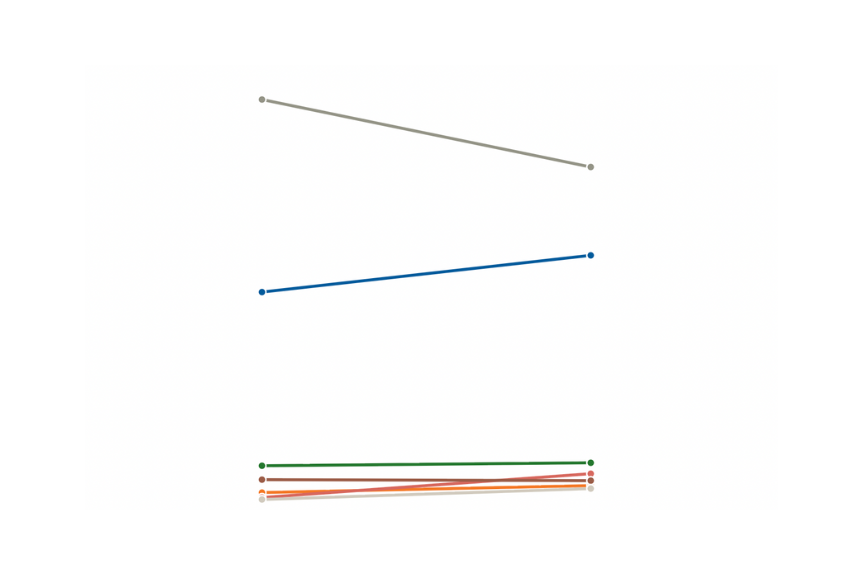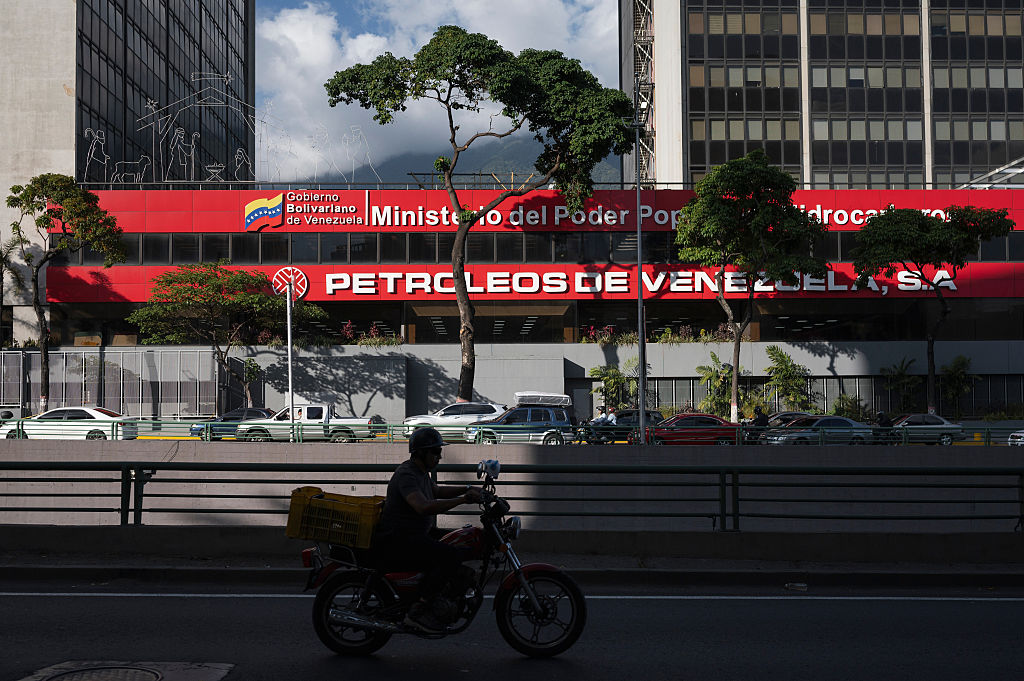Interview: Student Activist Yon Goicoechea on Venezuela's Political Future
Interview: Student Activist Yon Goicoechea on Venezuela's Political Future
Yon Goicoechea, Venezuelan law student, activist, and founder of the Futuro Presente Foundation describes his plans to start a school for young political leaders. “I believe that to have modern countries, we also have to renew our political structures,” says Goicoechea.
“I believe that to have modern countries, we also have to renew our political structures.”
Yon Goicoechea, Venezuelan law student, activist, and founder of the Futuro Presente Foundation spoke with AS/COA Online Managing Editor Carin Zissis about his country's student activist movement, widely credited with playing a pivotal role in the defeat of a December 2007 constitutional referendum. Goicoechea was recently awarded the 2008 Milton Friedman Prize for Advancing Liberty from the Cato Institute.“There are hundreds of thousands of young Venezuelans with a firm commitment to making good policy practices and that’s why I believe that in 10 years we will have renewed institutions in Venezuela and new opportunities for improvement,” says Goicoechea.
AS/COA: How did Venezuela’s student movement begin?
Goicoechea: In 2007, students went out and protested in the streets in response to restrictions on political and civil freedom in Venezuela; after the closure of RCTV, the oldest and the most important television station in the country, there were massive street protests, not only in Caracas, but in eight principal cities. A national student parliament was created and played a very important role in gaining victory in the December 2 referendum, in which the constitutional reform proposed by President Chávez was rejected, that would have otherwise established, from a constitutional point of view, a dictatorship and a military system in Venezuela. The student movement arose to protect civil and political rights in Venezuela, to preserve democracy and the ideas of freedom.
AS/COA: Many people attribute the student movement with the defeat of the referendum aimed to change Venezuela’s constitution. Tell us more about the demonstrations before Dec 2 and how you were able to communicate with the public, as well as the implications of the final outcome.
Goicoechea: Well, I believe that what happened on Dec 2 is very important because it put the brakes on a government with totalitarian inclinations, and it put the brakes on the advance of a militarism that would hold sway over our civil and democratic institutions. It also stopped the transformation of the Venezuelan state into a bastion of socialist fundamentalism. I believe, without a doubt, that through our victory on December 2, we preserved the possibility ofnow have renewed hopes of having a prosperous, pluralistic, and democratic Venezuela; we now have renewed hopes of a prosperous, pluralalistic, and democratic Venezuela; a free Venezuela where we can all belong without having to renounce our ideals. I believe the student movement was important to our victory at the polls, but I also believe it can be attributed to the people of Venezuela, and to many factors such as the social and political movements that joined forces in support of the preservation of civil liberties in Venezuela and of the dreams of the Venezuelan people who undoubtedly want to live in freedom.
AS/COA: I want to talk about your movement’s philosophy, because different articles talk about leftist or rightist movements in Venezuela. What is the political philosophy behind Venezuela’s student movement?
Goicoechea: The movement doesn’t have a determined philosophy because it is very pluralistic; there are people from the left and the right in our movement; what we share is more than an ideology. It’s a set of values involving democracy and freedom and we want to live in a country with independent institutions with equal opportunities to all its citizens. I cannot identify our movement with one specific ideology.
AS/COA: Now, I would like to know a little more about you, I heard that you recently won a grant from the Cato Institute with a considerable amount of money is attached to it for your foundation. Can you talk more about the present and the future of your foundation?
Goicoechea: Theis award comes with $500,000 in cash, which will be used to create a foundation to create a new school for young political leaders in Venezuela. We’ll accept Venezuelan students who want to be politicians from poor and marginalized sectors—people who don’t have the opportunity to study in a university, as well as Venezuelan and Latin American university students. The intention is to create a new, distinct generation of politicians who are conscientious, cultured, and that have sufficient leadership tools to successfully carry out a much needed transformation in our country. The goal is to vindicate the true value of politics as a career, as a legitimate and dignified way of life that serves as an option for young students in Latin America, who want a career in public service.
I believe that to have modern countries, we also have to renew our political structures. Our school will lay the foundations and motivate many youths to participate in politics from a more professional point of view, surrounded by the appropriate tools and knowledge.
AS/COA: Do you know the overall capacity of the school? Will it be for university students only?
Goicoechea: It will be for adult students. In Venezuela you’re an adult at 18, and our intention is that our students will be within the range of 18 and 30 years old because our school will be a school for leadership. We hope to maintain a young atmosphere. I think we will be starting our in the next academic year, (2009-2010).
AS/COA: If you can look ten years into the future, as a law student with plans for this school, where do you see yourself and your foundation?
Goicoechea: In 10 years, the youth of Venezuela must have permeated into the political establishment; a new political generation will have arisen to take the reins of the country as elected leaders. We will, finally, bring a transformation to public life in Venezuela. I believe that in ten years, Venezuela will be much better; I believe we are heading toward greater development, and overall I see a very positive future. I believe that there are many things that can be won if we have the will to do things right. There are hundreds of thousands of young Venezuelans with a firm commitment to making good policy practices and that’s why I believe that in 10 years we will have renewed institutions in Venezuela and new opportunities for improvement.
AS/COA: One last question, how do you create an international network with other international and communicate about what is happening in Venezuela, particularly in terms of the student movement?
Goicoechea: With our foundation we want to extend our international network to include other foundations and student movements in Latin America. We have visited several countries and universities in the region, and we’ve held conferences in universities. We would like to expand our network to create a Latin American forum for public debate on our common challenges as well as to share possible common solutions.
Translated by Carlos Macias and Antonio Sosa.








